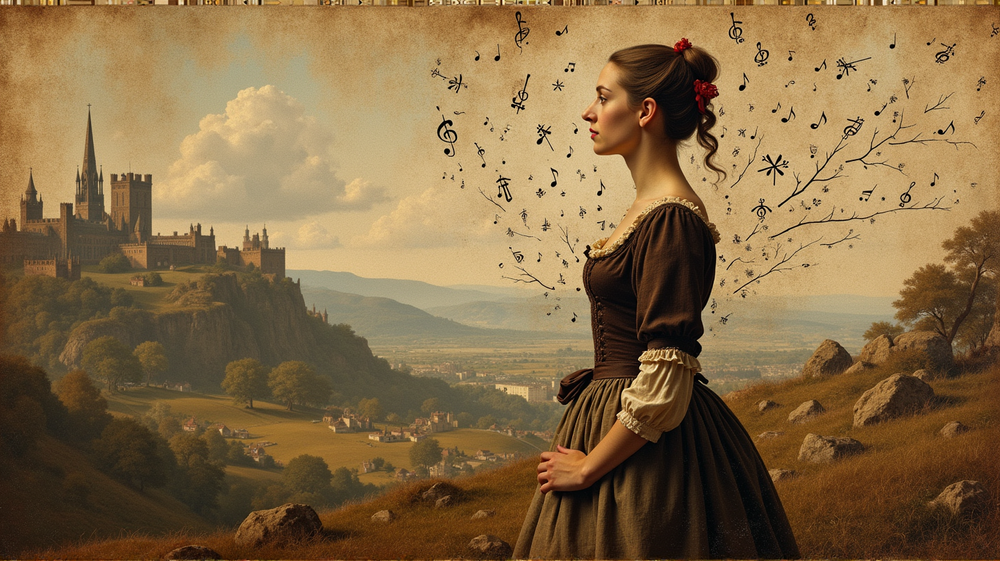In the hushed echoes of Scotland’s verdant glens, the melodies of ballads have long narrated tales of love, loss, and triumph. Professor Emerita Ruth Perry’s latest work, “The Ballad World of Anna Gordon, Mrs. Brown of Falkland,” delves into the lives entwined with these haunting melodies and the legacy they preserve for Scotland and beyond.
The Ballad Enthusiast: An Intricate Legacy
As intricately as the fabric of Scottish tartan, Anna Gordon’s life was woven with ballads. Her family milieu, centered in Aberdeen, was steeped in the intellectual vibrancy of the Scottish Enlightenment. Her father, Thomas Gordon, and family friend, William Tytler, played pivotal roles in fostering her cultural pursuits, expanding her reach within the broad landscapes of musical traditions.
Cultural Threads and National Identity
The period surrounding the Jacobite uprising saw Scotland grappling with its national identity. The ballads collected and enhanced by Anna reflected not just personal tales but were vessels of national sentiment. These songs became defiant anthems, cherished for their unique Scottish character amidst English influences.
Women as Keepers of Tradition
In an era where literacy was burgeoning, Scottish women found themselves unique custodians of oral history. Anna Gordon’s days were spent amidst cultural richness, where the prevalence of parish schools elevated literacy. This mirrored how education unfurled itself wider in Scotland than elsewhere, potentially empowering women like Anna to transcend societal norms and preserve oral traditions through song.
Ballads: Beyond Melancholic Refrains
Contrary to the often grim nature of traditional ballads noted for their tales of death and rivalry, Anna’s collection bore a gentler narrative. Her ballads gave voice to stories of familial love, youthful victories, fidelity, and occasionally the strains of inheritance and betrayal. They resonated with human experiences that were surprisingly modern in their emotional depth.
A Medium of Cultural Resistance
These melodies took shape against a backdrop of cultural resistance, binding communities with a shared heritage. As stated in MIT News, Anna Gordon’s anthology stood as a bulwark against the encroaching tides of conformity, acting as a cultural beacon for both the elite and the masses. They served as a consistent remembrance and celebration of Scottish roots and their timeless tales.
The vivid portrayal of Anna Gordon’s ballads brings an absorbing view of the role of music as both a historic and cultural document. These songs encapsulated a spirit of resilience and a dedication to cultural integrity that serves as a compelling reminder in today’s fast-paced world of the timeless power of melody and storytelling.












